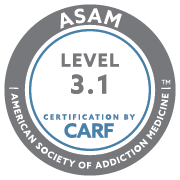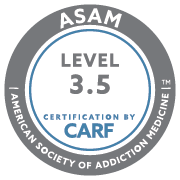When the urges for stinking thinking begin, relapse is not far behind. Here are some internal and external warning signs which can begin the relapse cycle. Keep in mind that relapse happens long before the first drink, use, or bet.
Internal signs, when neglected can lead to dysfunction
Mind:
• Difficulty in thinking clearly
• Difficulty in managing feelings and emotions
• Difficulty in remembering things
• Uneasiness with well-being; unexplained fear and anxiety
• Rationalize being able to control use
• Believing “I will never drink again,” and denying need for a recovery lifestyle
• Development of “I don’t care” attitude
Body:
• Inability to sleep restfully
• Irregular eating habits
• Difficulty with life
• Headaches, other aches and pains
• Indigestion, ulcers, loss of appetite
• Complexion problems, skin irritations; acne; cold sores
• Exhaustion; lack of Spirit:
• Dissatisfaction with life now
• Self-pity
• Daydreaming and wishful thinking: “if only”
• Feeling that nothing can be solved
• Deep sense of shame, guilt, of hopelessness
External signs, when neglected can lead to dysfunction
Problems with People:
• Easily angered
• Irritation with friends/co-workers
• Open rejection of help
• Conscious lying
• Unreasonable resentment
• Argumentativeness
• Defensiveness
• Tendencies toward loneliness
• Expecting too much of others
• Worrying about others instead of self
Problems with Situations:
• Things going too well, becoming complacent
• Letting up on discipline and life in recovery
• Impulsive behavior
• Lack of daily structure
• Tunnel vision
• Lack of desire to take action
• Becoming irregular in attendance at AA and treatment meetings
• Avoiding things that are fun
• Over analyzing self; same thoughts over and over
• Living in the past/or future
• Loss of self-confidence
• Pre-occupation with one area of life
• Avoiding talking about problems being experienced
Other Symptoms of Stinking Thinking/Relapse:
• Not maintaining a regular schedule
• Trying to make things happen too fast-impatience
• Argumentativeness (being right at all costs)
• Withdrawal from social situations
• Throwing fits when things don’t go your way
• Having a “poor me” attitude
• Being too cocky-“I know what I need to know-this is a waste of time”
• Having a “hey, I’m doing fine-leave me alone” attitude
• Expecting things and people to change on your schedule-“Why hasn’t everyone changed like I have” mentality
• Letting go on basic recovery activities-meditation, prayer, daily inventory, AA/NA meetings
• Wanting too much, too soon
• Getting involved in relationships with other sick people before ready for a relationship
• Forgetting gratitude-“where did I come from?”
• It can’t happen to me
• Omnipotence-“I have all the answers, for me and others”
• Old friends who use won’t corrupt me-I can control that situation





